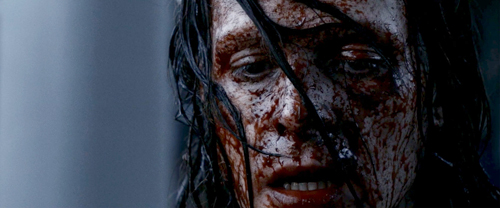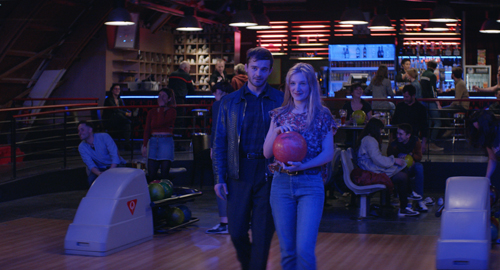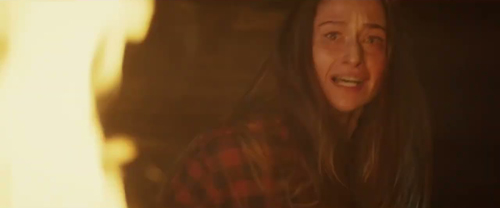
 Halloween’s indie anthology franchise returns with another bag of treats in 10/31 Part III. To continue that analogy, I liken its quartet of stories to chocolate coins: Yeah, technically, they’re chocolate, but they’re no Peanut M&M’s.
Halloween’s indie anthology franchise returns with another bag of treats in 10/31 Part III. To continue that analogy, I liken its quartet of stories to chocolate coins: Yeah, technically, they’re chocolate, but they’re no Peanut M&M’s.
As with the 2017 original (which I disliked) and Part II (which I skipped), this third trip ’round the block is hosted by Elvira substitute Malvolia (Jennifer Nangle, Amityville Karen), if less than 90 seconds’ screen time counts. I don’t believe it does.

On deck between her pair of fleeting appearances are tales of a divorcée acquiring a thrift-store mummy for his homemade haunted house, a serial killer not for nothing known as The Locksmith, youngsters terrorizing a mean old teacher, and a menacing toy called Hack-in-the-Box. (That last one must have Charles Band kicking himself for not thinking of it first.) All four contain a great idea, especially The Locksmith, but none merits as meaty of time allotted. Each runs out of gas roughly halfway in, despite general competence behind the camera and in the effects. Writing and acting are another matter.
Best about 10/31 Part III are the five fake trailers. These precede the proper omnibus instead of scattered throughout like crispy leaves on a driveway, which would work better. From slasher homage Candy Killer to unfunny juvey comedy Night of the Halloweenies, they owe a larger debt to Stephen Romano’s Shock Festival than Quentin Tarantino and Robert Rodriguez’s Grindhouse. —Rod Lott






 Although they share a smattering of DNA, estranged half-brothers Guillaume and Armand could not be more different. Guillaume (Arieh Worthalter, 2016’s
Although they share a smattering of DNA, estranged half-brothers Guillaume and Armand could not be more different. Guillaume (Arieh Worthalter, 2016’s 

